Table Of Contents
Air conditioning is not just a luxury; it’s often a necessity, especially when renting a property. Whether you’re a tenant enjoying the cool comfort during scorching summers or a landlord ensuring your property is equipped with the best amenities, the question of who the responsibility for air conditioning maintenance falls onto arises.
In this article, we’ll delve into landlords’ and tenants’ roles and responsibilities, shed light on shared duties, explore legal considerations, and discuss the benefits of proactive maintenance. Let’s dive in!
Landlord’s Responsibilities
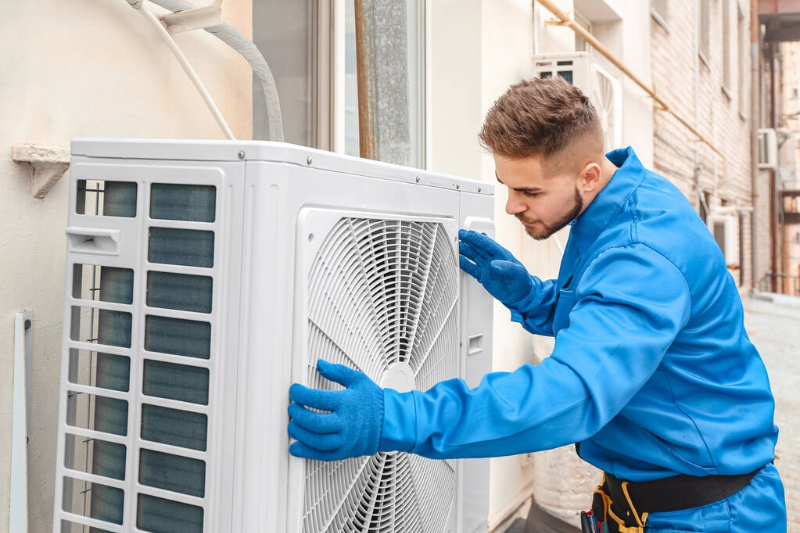
Initial installation and ensuring proper functionality
Landlords bear the responsibility of initial installation and maintaining functional air conditioning systems. Before a tenant moves in, ensuring the HVAC system is in optimal condition is crucial, offering efficient cooling to the entire property.
Regular inspections and scheduled maintenance
Regular check-ups are vital in preventing significant issues. Landlords should schedule routine inspections and maintenance to address problems before they escalate, ensuring the air conditioning system operates smoothly throughout the tenancy.
Prompt response to tenant complaints
Tenants may encounter issues, and landlords need to address them promptly. Whether it’s a minor glitch or a malfunction, swift action ensures tenant satisfaction and prevents further damage to the HVAC system.
Financial responsibility for major repairs
While tenants take charge of day-to-day maintenance, landlords typically shoulder the financial burden of significant repairs. This includes issues beyond regular wear and tear, emphasising the landlord’s commitment to providing a habitable living environment.
Providing guidelines for proper usage
Clear communication is vital. Landlords should establish guidelines for proper air conditioning usage, educating tenants on the system’s capabilities and limitations. This proactive approach can prevent unnecessary strain on the equipment.
Tenant’s Responsibilities
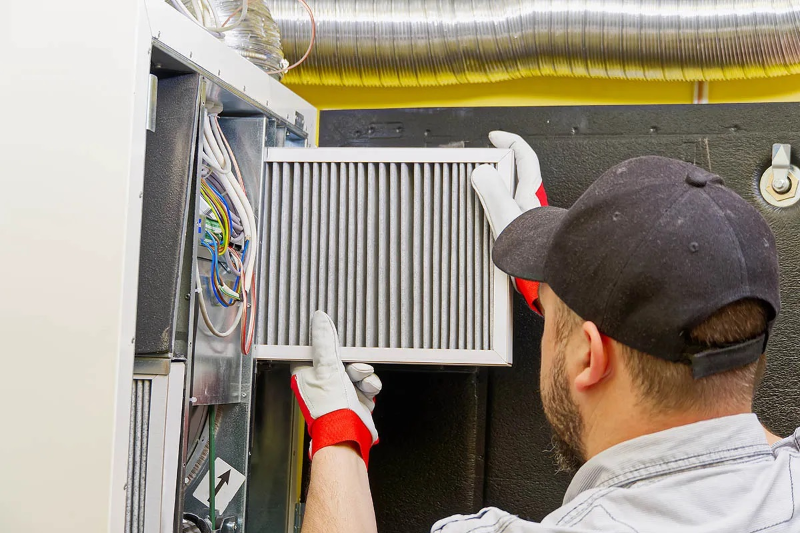
Basic air filter replacement
Tenants should regularly replace air filters. Filter replacement is a simple yet effective task that enhances the system’s efficiency and promotes better air quality. This basic responsibility contributes to the overall well-being of the HVAC system.
Regular cleaning and dusting
Dust and debris can accumulate, affecting the air conditioning unit’s performance. Tenants should conduct regular cleanings and dust around the system to prevent blockages and maintain optimal functionality.
Reporting minor issues promptly
Tenants play a crucial role in the maintenance process by reporting any issues promptly. From unusual sounds to minor malfunctions, timely communication allows landlords to address problems before they escalate into major repairs.
Adhering to usage guidelines
Following the guidelines set by landlords is essential. This includes understanding optimal temperature settings, using the system responsibly, and avoiding practices that may strain the air conditioning unit.
Cooperation with landlord-initiated inspections
Tenants should cooperate with landlord-initiated inspections, providing access to the HVAC system when necessary. This collaboration ensures thorough maintenance checks and contributes to the system’s longevity.
Shared Responsibilities
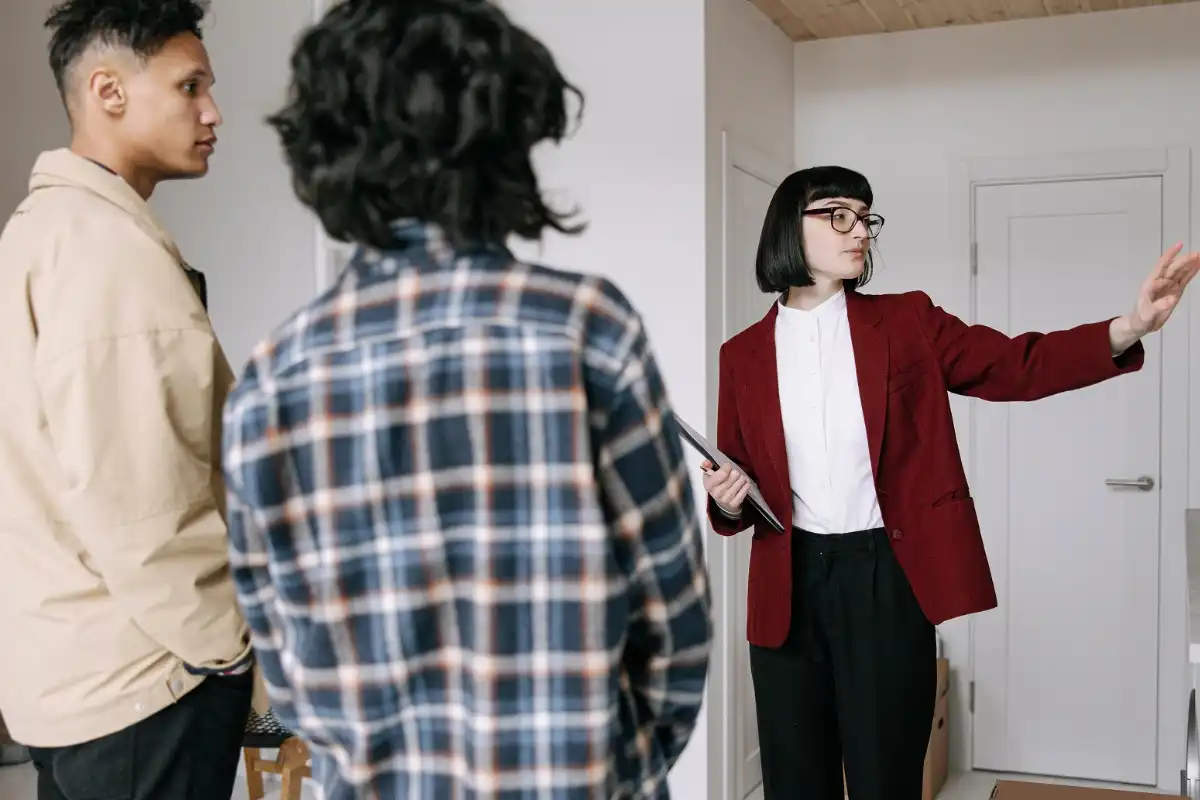
Clear communication channels
Open lines of communication are essential. Landlords and tenants should establish clear channels for reporting issues, discussing maintenance schedules, and addressing any concerns related to the air conditioning system.
Establishing a maintenance schedule
Collaboratively setting a maintenance schedule ensures that both parties are on the same page regarding routine check-ups. This proactive approach can prevent unexpected breakdowns and promote a cooperative relationship between landlords and tenants.
Cooperation in emergencies
Emergencies can happen, and a collaborative approach is crucial during such times. Tenants should promptly report emergencies, and landlords should respond swiftly to ensure the safety and well-being of the occupants.
Agreement on repair costs
While landlords typically cover significant repairs, there should be a mutual understanding regarding minor repair costs. Clear terms in the lease agreement can prevent disputes and define each party’s financial responsibilities in various maintenance scenarios.
Documenting maintenance and repairs
Maintaining a record of every maintenance and repair benefits both landlords and tenants. This documentation provides a transparent history of the HVAC system’s upkeep, aiding in future troubleshooting and potential legal matters.
Legal Considerations
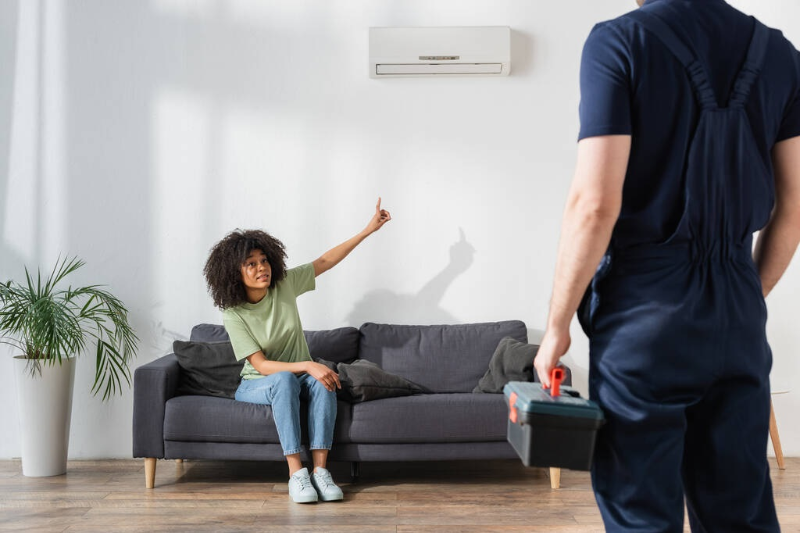
Lease agreement clauses on maintenance
Lease agreements should explicitly outline responsibilities related to air conditioning maintenance. Clearly defined clauses prevent misunderstandings and provide a legal foundation for resolving disputes.
Local and state regulations
Familiarising yourself with local and state regulations is vital. Some regions may have specific laws regarding landlord and tenant responsibilities for air conditioning maintenance, and adherence to these regulations is crucial for both parties.
Understanding warranty terms
Tenants and landlords responsible for HVAC maintenance should be aware of any existing warranties on the HVAC system. Understanding warranty terms helps determine who is responsible for specific repairs and replacements.
Liability for damage due to negligence
Negligence can lead to damages, and lease agreements should address liability in such cases. Whether it’s tenant neglect or landlord negligence, having clear terms can facilitate fair resolutions.
Dispute resolution mechanisms
In the unfortunate event of a dispute, having a predefined mechanism for resolution is crucial. Mediation or arbitration clauses in the lease agreement can provide a structured way to address disagreements without resorting to costly legal proceedings.
Benefits of Regular Maintenance
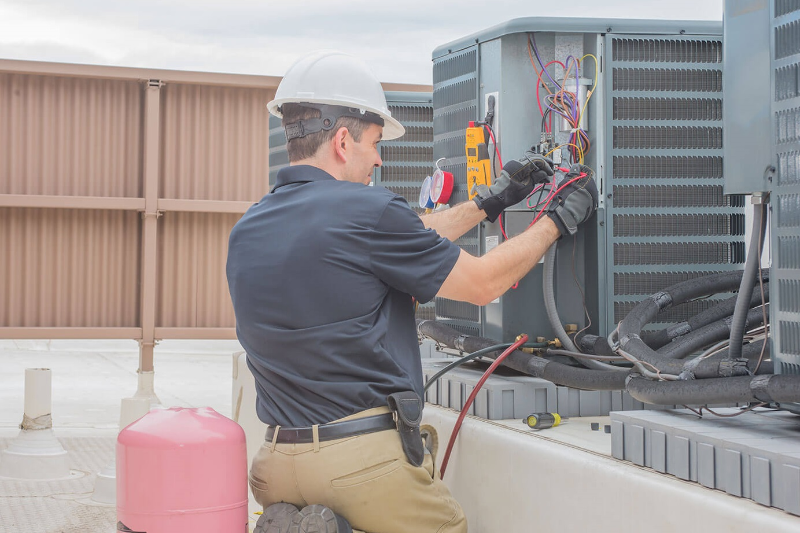
Extended lifespan of HVAC systems
Regular maintenance contributes to the longevity of HVAC systems. Periodic check-ups, filter replacements, and minor repairs can prevent wear and tear, ensuring that the air conditioning unit serves both landlords and tenants for an extended period.
Energy efficiency and cost savings
Well-maintained HVAC systems operate more efficiently, reducing energy consumption and lowering utility bills. This impacts the environment and contributes to cost savings for both landlords and tenants in the long run.
Improved indoor air quality
Proper maintenance, including filter replacements and duct cleaning, enhances indoor air quality for both residential and commercial spaces. This is especially crucial for tenants with respiratory conditions or allergies, creating a healthier living environment.
Prevention of costly repairs
Addressing minor issues during routine maintenance helps prevent major and more expensive repairs. Regular check-ups allow for identifying potential problems before they escalate, saving landlords and tenants from unexpected financial burdens.
Positive impact on property value
A well-maintained air conditioning system adds value to the property. It reflects positively on the landlord, attracting potential tenants and contributing to the overall market value of the rental property.
Consequences of Neglect
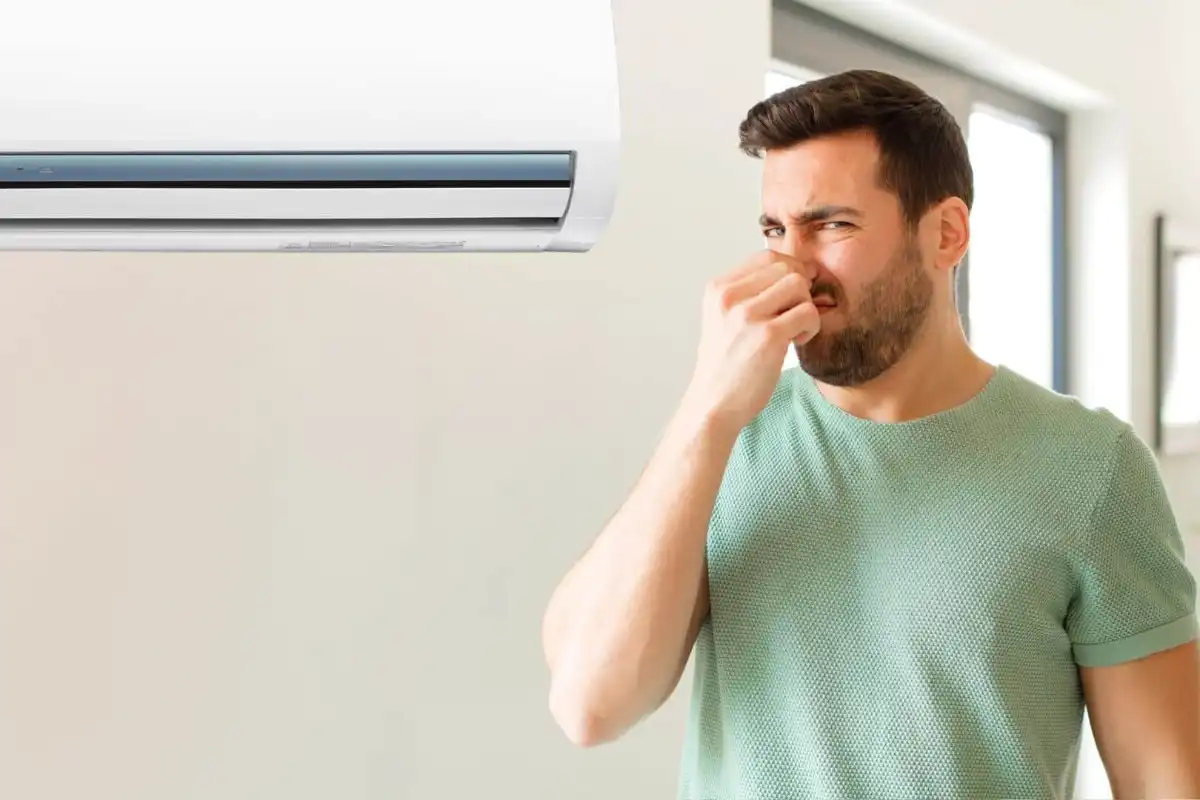
Potential health hazards
Neglecting air conditioning servicing and maintenance can lead to the accumulation of dust, mould, and other allergens, posing health risks to occupants. Regular upkeep is crucial for creating a safe and healthy living environment.
Increased energy consumption
Neglected HVAC systems often operate inefficiently, resulting in increased energy consumption. This not only raises utility costs but also has a negative influence on the environment, contributing to higher carbon footprints.
Escalating repair costs
Ignoring minor problems can result in significant breakdowns, resulting in higher repair costs. Neglecting maintenance is a short-sighted approach that can strain the financial resources of both landlords and tenants.
Strained landlord-tenant relationships
A malfunctioning air-con can lead to frustration and strained relationships. Clear communication and collaborative maintenance efforts are essential to maintain a positive rapport between landlords and tenants.
Legal Ramifications
Neglecting maintenance responsibilities can have legal consequences. Landlords may be held liable for providing uninhabitable living conditions, while tenants may face repercussions for ignoring basic maintenance tasks outlined in the lease agreement.
Tips for Efficient Air Conditioning Management
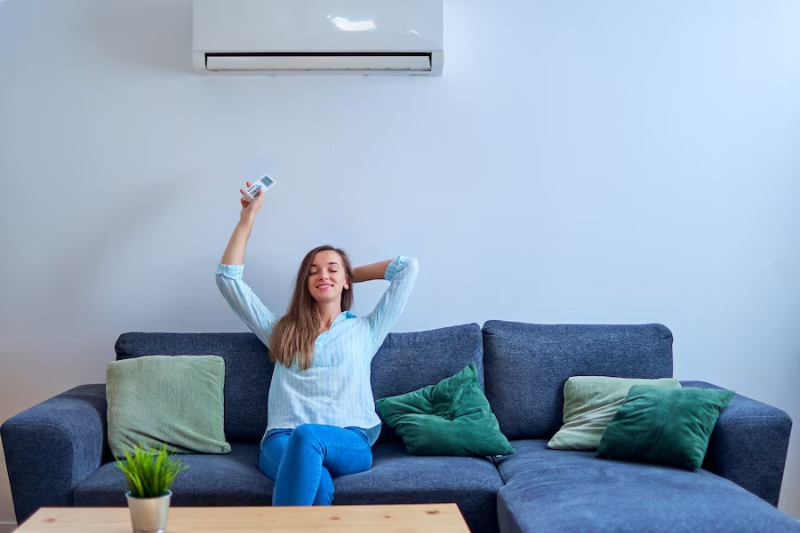
Educating tenants on proper usage
Landlords can proactively educate tenants on the optimal use of the air conditioning system. Providing guidelines on temperature settings, usage limitations, and reporting procedures fosters responsible usage and prolongs the lifespan of the HVAC unit.
Regularly updating HVAC systems
Investing in modern, energy-efficient air conditioners enhances tenants’ comfort and reduces energy consumption. Regular upgrades ensure the property remains competitive in the rental market and aligns with evolving energy efficiency standards.
Investing in smart thermostats
Smart thermostats have advanced features such as programmable schedules and remote control capabilities. Landlords can consider installing these devices to empower tenants with greater control over their energy usage, promoting efficiency.
Encouraging energy-efficient practices
Both landlords and tenants can collaborate on energy-saving practices. Simple steps like closing curtains during peak sunlight hours, using fans strategically, and sealing windows and doors can collectively contribute to energy efficiency.
Seeking professional maintenance services
Regular professional maintenance is essential. Landlords should consider hiring qualified technicians to perform routine check-ups and address any issues promptly. Professional services ensure the thorough inspection and upkeep of the HVAC system.
Empower Your Rental Experience: Act Now!
Whether it’s ducted air conditioners or split systems, remember that a well-maintained air conditioning system is not just about cooling; it’s about enhancing your quality of life. Landlords and tenants, united in responsibility, can create an environment where comfort and efficiency coexist.
Take proactive steps, communicate openly, and consult an AC professional to ensure the longevity of your living space. Act now for a comfortable, sustainable, and harmonious rental experience.



